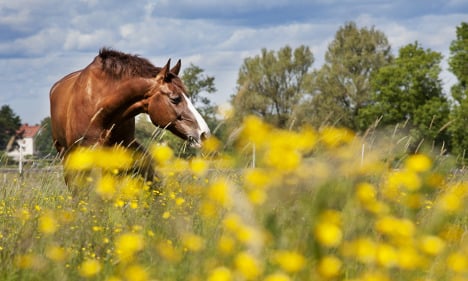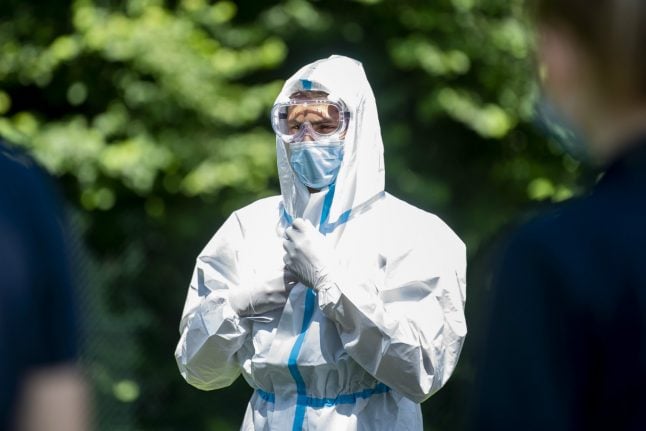MEAT
Row as uni riding club dishes up horse meat
Students in Linköping in southern Sweden are up in arms after a university riding club held its annual party at a restaurant that specializes in horse meat.
Published: 3 June 2015 11:01 CEST
Updated: 3 June 2015 14:16 CEST
Updated: 3 June 2015 14:16 CEST

A horse grazing in the Swedish countryside. Photo: Melker Dahlstrand/Image Bank Sweden
More than a thousand people have signed an online petition protesting against a decision by Linköping University's riding club (Linköpings akademiska ridklubb) to hold its summer party at De Klomp, a Dutch eatery which dedicates 25 percent of its menu to horse meat.
The petition, which opened on Monday but had closed by Wednesday morning, called on campaigners to “denounce restaurant De Klomp in Linköping, Sweden, for killing a horse”. It also featured a photo of a dead horse on the floor of a slaughterhouse, covered in blood.
The club's annual summer dinner took place on May 19th, with riders feasting on a mixture of cured meats, followed by hot roasted horse meat accompanied by warm potato and vegetable salad with chilli mayonaise. Some washed it down with a beer called Dead Pony.
Ahead of the event, Frida Dagsgård, the club's treasurer and vice president sent a message to members saying that she hoped the event would break taboos about eating certain kinds of animals.
“Pets have recieved [a] very high status in society. People have too close a relationship to them…only 60 years ago we ate horses and rabbits as [our] staple diet,” she wrote.
Reacting to the petition, she told regional newspaper Corren.se: “We thought we might get some upset comments, but not that those people would start a petition – certainly not.”
“It started as a joke. Someone said that maybe we could test horse meat. First of all we laughed, then we thought that it was something we could actually do,” she added.
Take Aanstoot, the owner of De Klomp in Linköping, told The Local on Wednesday that he was “happy about the fuss” surrounding the riding club's choice.
“I want more people to talk about meat production and not wasting food…because we are wasting food because we think that some things are too cute to eat.”
Sweden has one of the largest numbers of horses per capita in Europe, and has long promoted high-quality breeding.
“Sweden has more horses nowadays than cows and most of these end up in Italy or Bulgaria after having to take long journeys there or being incinerated,” said De Klomp.
“It would be much more humane to keep them here,” he added.
De Klomp has been serving horse meat for three years and Aanstoot describes it as “quite a lot like beef but with a more iron-like flavour…a bit bitter and richer in taste”.
Aanstoot said he had not been contacted by any other riding clubs but said that they would be “more than welcome” to try his restaurant's cuisine.
“A lot of organizations already choose us for their meals and we would love to host the Linköping riders again.”
Url copied to clipboard!



 Please whitelist us to continue reading.
Please whitelist us to continue reading.